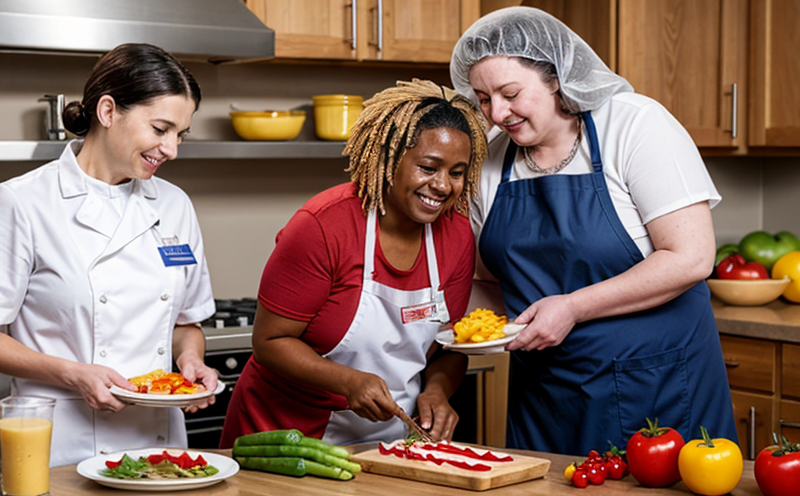Food Safety for Special Populations
Food safety is a critical concern for everyone, but its especially important for individuals with certain health conditions or circumstances that may put them at greater risk of foodborne illness. These populations include the elderly, young children, pregnant women, and people with weakened immune systems, such as those with HIV/AIDS or undergoing chemotherapy.
Understanding Special Populations
Elderly (65 years): As we age, our immune system weakens, making us more susceptible to foodborne illnesses. Elderly individuals may also have difficulty recognizing symptoms of illness, which can lead to delayed medical attention and worsened outcomes.
Factors that increase risk:
- Weakened immune system
- Decreased sense of taste and smell
- Difficulty swallowing or chewing
- Increased use of medications that interact with food
- Presence of underlying health conditions, such as diabetes or heart disease
Young Children (under 5 years): Children under the age of five are also at higher risk for foodborne illnesses due to their developing immune systems and behaviors.
Factors that increase risk:
- Weakened immune system
- Hand-to-mouth behavior, which can spread bacteria
- Inadequate nutrition and hydration
- Presence of underlying health conditions, such as asthma or eczema
Food Safety Considerations for Special Populations
Cooking and Preparation:
Use safe food handling practices, such as washing hands frequently and separating raw meat from ready-to-eat foods.
Cook food to the recommended internal temperature:
- Beef, pork, and lamb: 145F (63C)
- Ground meats: 160F (71C)
- Poultry: 165F (74C)
- Fish: 145F (63C)
Food Selection:
Choose foods that are less likely to harbor pathogens:
- Fresh fruits and vegetables
- Cooked meats, such as chicken or beef
Avoid high-risk foods, such as raw oysters, raw sprouts, and unpasteurized dairy products.
Storage and Handling:
Store food at the correct temperature:
- Refrigerate perishable items within 2 hours of purchase
- Freeze leftovers promptly to prevent bacterial growth
Keep food separate from other foods:
- Use airtight containers to prevent cross-contamination
Additional Considerations for Specific Populations
Pregnant Women:
Avoid high-risk foods, such as raw oysters and unpasteurized dairy products.
Cook meat to the recommended internal temperature to reduce risk of listeriosis.
Wash hands frequently and use separate cutting boards for meat and produce.
People with Weakened Immune Systems:
Use a thermometer to ensure food is cooked to a safe internal temperature.
Choose pre-cooked or ready-to-eat foods whenever possible.
Avoid undercooked eggs, raw sprouts, and unpasteurized dairy products.
QA Section
Q: What are some common signs of foodborne illness in special populations?
A: Common symptoms include nausea, vomiting, diarrhea, stomach cramps, fever, and headache. In elderly individuals, these symptoms may be mild or nonspecific, making diagnosis more challenging.
Q: How can I prevent cross-contamination in the kitchen when preparing food for a special population?
A: Use separate cutting boards, utensils, and plates for raw meat, poultry, and seafood to prevent cross-contamination. Wash hands frequently with soap and warm water.
Q: What are some high-risk foods that should be avoided by special populations?
A: High-risk foods include raw oysters, unpasteurized dairy products, raw sprouts, undercooked eggs, and undercooked meat, poultry, and seafood.
Q: How can I ensure food is cooked to a safe internal temperature when preparing meals for a special population?
A: Use a thermometer to check the internal temperature of cooked foods. For specific temperatures, refer to the USDAs recommended cooking temperatures (listed above).
Q: What are some nutrition considerations for special populations with compromised immune systems?
A: Individuals with weakened immune systems may require a balanced diet that includes nutrient-dense foods, such as fruits, vegetables, whole grains, lean proteins, and healthy fats.
Q: How can I store food safely when preparing meals for a special population?
A: Store perishable items in the refrigerator at 40F (4C) or below within 2 hours of purchase. Freeze leftovers promptly to prevent bacterial growth.
Q: What are some common pathogens that affect special populations, and how can they be prevented?
A: Common pathogens include Salmonella, E. coli, Listeria, Campylobacter, and Norovirus. Prevent these pathogens by practicing safe food handling, cooking, and storage practices.
Q: Can I still enjoy raw oysters or unpasteurized dairy products if Im a special population?
A: No, high-risk foods like raw oysters and unpasteurized dairy products are not recommended for individuals with weakened immune systems, pregnant women, or the elderly due to the risk of foodborne illness.
Q: How can I educate family members or caregivers about food safety when preparing meals for a special population?
A: Educate them on safe food handling practices, such as washing hands frequently, separating raw meat from ready-to-eat foods, and cooking food to the recommended internal temperature.

































